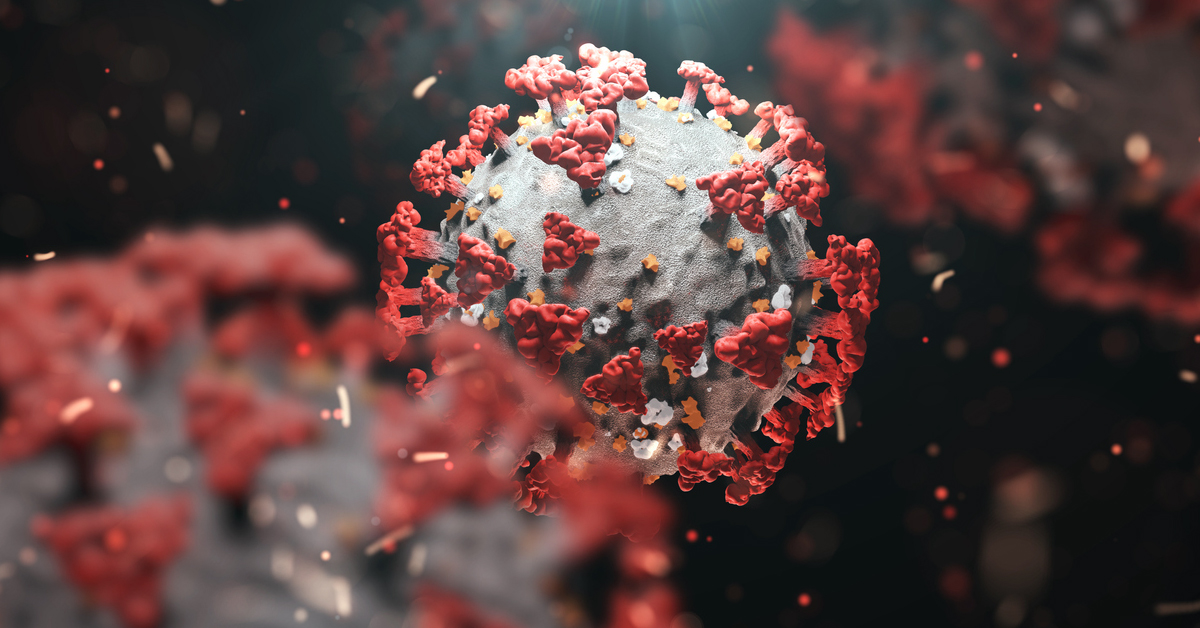By now, many of us can list the more severe symptoms of COVID-19 by memory. There’s fever, chills, a shortness of breath, intense fatigue, and some muscle or body aches. Of course, we also know that we can be asymptomatic too–showing few or no signs at all.
Within a range of symptoms like this, it can be difficult to gauge our physical state at any given moment, to say nothing of determining our best course of action.
How can we trust our own understanding of our health from day to day? What symptoms should we pay most attention to?
UAB Medical West’s Dr. Michael J. Latshaw has an idea. “Up to 86% of patients with COVID-19 will have a loss of sense of taste and smell.”
But how and why has the connection been made between loss of taste and smell and COVID-19?
How COVID Affects Smell
“We know that SARS-CoV-2, the virus that causes COVID-19, can affect individuals in a variety of ways,” says Dr. Latshaw.
But there has been an important development. “One of the potential hallmark symptoms of a COVID-19 infection can be hyposmia.”
Hyposmia, the reduced ability to smell, and anosmia, the partial or complete loss of smell, are both important indicators of a COVID infection. But why, of all things, should COVID affect smell?
Dr. Latshaw elaborates, “Though there is ongoing research, a study done at Harvard Medical School published in Science Advances from July 2020 showed that SARS-CoV-2 affected the metabolic and structural support cells of olfactory (smell) neurons, instead of affecting the olfactory neurons themselves.”
Based on how SARS-CoV-2 affects the olfactory support cells rather than the olfactory neurons, this loss of smell is likely temporary in most cases.
“In fact,” says Dr. Latshaw, “most patients who lose their sense of smell due to COVID-19 experience improvement within weeks or months after recovery from the virus.”
Even so, an acute loss of smell should make us highly suspicious of a COVID infection.
How COVID Affects Taste
As it turns out, our sensation of “taste” involves a lot more than just the tongue. As Dr. Latshaw explains, “Our sense of taste is directly tied to our sense of smell.”
“Our ability to taste food comes from a combination of working taste receptors (taste buds) on our tongue, as well as our ability to smell different aromas.”
Dysgeusia, a condition which limits or alters our sense of taste, can also be a symptom of COVID-19 that relates to our loss of smell.
Typically, the human tongue contains receptors for 5 kinds of taste: sweet, sour, salty, bitter, and savory. Someone suffering from dysgeusia may experience limitations to taste, tasting only sweet, sour, bitter, or metallic flavors.
“There are rare occasions where one’s sense of taste is affected by other neurological processes,” says Dr. Latshaw, “but there is little data looking at SARS-CoV-2’s direct effect on the nerves that innervate our taste buds.”
COVID Symptoms vs. Allergies
A “loss of taste and smell” sounds familiar to anyone suffering from seasonal allergies, but there are several key differences between COVID symptoms and allergy symptoms.
“Loss of sense of smell with COVID-19 typically happens very quickly,” says Dr. Latshaw.
“Other upper respiratory or sinus infections caused by a virus or bacteria can affect sense of smell as well, but are usually less abrupt, and also usually associated with sinonasal congestion, nasal discharge and or facial pain.”
Barring a recent head injury, Dr. Latshaw encourages the public to focus more on the “abrupt” nature of loss of smell and taste, especially “if one has other symptoms or has a known direct contact with a COVID-19 positive individual.”
When in doubt, the best course of action is isolation and quarantine.
Keeping You Informed
As the COVID crisis continues, UAB Medical West and its dedicated professionals like Dr. Latshaw will keep you updated on developments, symptoms, testing, and vaccination efforts. Hope is just around the corner–but the promise of the vaccine shouldn’t inspire carelessness.
Dr. Latshaw has the final word. “It is important to prevent the spread of the disease as much as possible,” he says.
“The simplest and safest way to do this is to wear a mask while in public and to limit one’s public exposure as much as possible.”
UAB Medical West is here to help you through the pandemic and beyond!
These are unusual times and they require unusual thinking. As we all become amateur health care researchers, it’s still important to rely on expert advice from the experts themselves. UAB Medical West is monitoring COVID developments across the board. For more information about signs and symptoms, visit UAB Medical West’s website today. UAB Medical West proudly serves Hueytown, Hoover, Bessemer, McCalla, and Vance!
